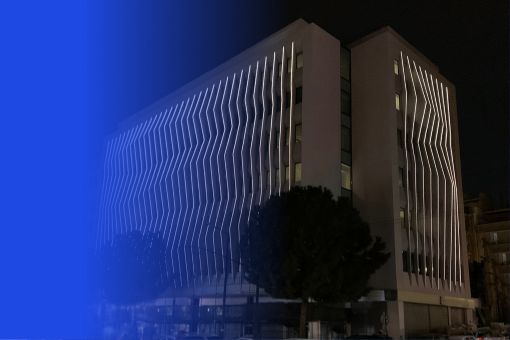The Greek real estate market has rebounded strongly from the economic crisis of the last decade and has overcome the challenges posed by the global COVID-19 pandemic. We have witnessed significant activity in the real estate development and investment markets from both major international and local investors. There has also been significant occupier activity as companies across all sectors demand more and better-quality space. Activity in the residential market has been also strong, with increased demand from local and, in particular, foreign buyers.
However, the Greek real estate market is not isolated from global trends; it is influenced by shifts in the international landscape. Several key factors are shaping the industry, and both corporate occupiers and real estate investors should remain aware of these trends to make informed decisions.
Sustainability and ESG
The growing global emphasis on sustainability and ESG practices is reshaping the real estate sector. Investors and occupiers must embrace sustainable strategies, such as energy efficiency, green building certifications, and responsible property management, to align with evolving market and regulatory demands.
Technology and Innovation
The digital revolution is transforming the way real estate operates. Technology-driven advancements, such as smart buildings, Internet of Things (IoT) integration, and data analytics, are enhancing efficiency, improving tenant experiences, and driving investment decisions. Embracing these innovations can yield substantial competitive advantages.
Flexible Workspaces
The rise of remote and flexible work arrangements has led to a shift in office space requirements. With the demand for hybrid work environments, companies are seeking flexible, adaptable spaces that foster collaboration and support a distributed workforce. Real estate players must adapt to this paradigm shift by offering versatile solutions that cater to evolving work dynamics.
Alternative Real Estate Asset Classes
These have gained prominence among investors seeking diversification, income generation, and exposure to emerging trends. For example, demographic shifts, such as an aging population and the rise of millennials, have created demand for specialized real estate, including healthcare facilities, senior living communities, and co-living spaces, whilst the rise of e-commerce has driven the demand for logistics and distribution centers. An increased desire for experience- based and luxury travel has led to an increase in upscale resort development as well as branded vacation homes. Moreover, the increasing reliance on data and connectivity has propelled investments in data centers and telecommunications infrastructure.
Our real estate team comprises highly experienced and accredited by RICS real estate professionals (οur Real Estate division is registered under the RICS Valuer Registration Scheme as well as the Register of Certified Valuers of the Hellenic Ministry of Finance) that can help clients make informed and added-value decisions on real estate issues. By combining the capabilities and expertise of the entire KPMG team we can offer seamless end-to-end integrated services to incorporate legal, tax and deal advisory advice to cover the entire needs of real estate owners, investors and users.
Connect with us
Prefer to speak to KPMG directly? Find the telephone and address details of an office near to where you are.
Contact



